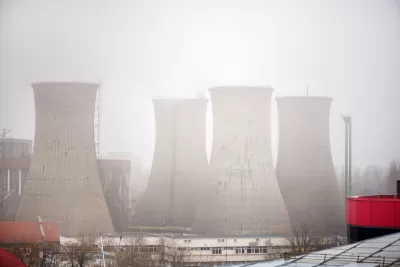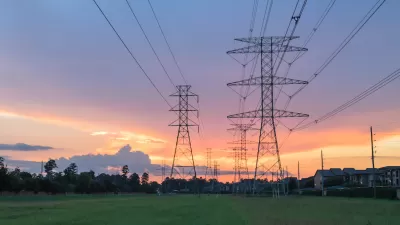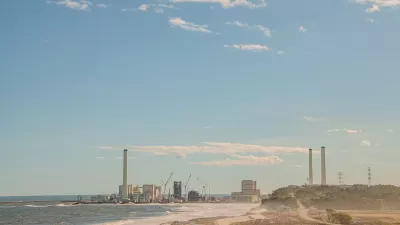“It has to be one of the greatest wastes of money in any state’s history,” Alan Greenblatt writes.

In the first line of his piece on failed nuclear plants in South Carolina, Alan Greenblatt speculates, “It has to be one of the greatest wastes of money in any state’s history.”
The story begins 12 years ago:
“Back in 2006, South Carolina, along with several other states, passed legislation to try to jumpstart the moribund nuclear construction industry. At the time, energy was more expensive than it is today and there was talk of Congress perhaps imposing a carbon tax. In states with growing populations, encouraging nuclear energy through a new approach seemed like a good idea.”
What also seemed like a good idea was a financing strategy that had utility customers paying for the plants as they were built, instead of being presented with a bill once they were finished.
Which is how those customers have paid $2 billion into projects that will never generate electricity; in fact, even though work has ceased, and the company contracted to build the plants went bankrupt last summer, and an audit uncovered faulty designs and poor management, South Carolinians are still paying $37 million per month to South Carolina Gas & Electric and Santee Cooper.
“The state is now trying to figure out who’s to blame, and who will pay,” Greenblatt writes, noting that it’s unlikely the utility companies could refund ratepayers even if the state demanded it, that they both claim they can’t continue to operate if the payments cease.
FULL STORY: South Carolina Spent $9 Billion on Nuclear Reactors That Will Never Run. Now What?

Planetizen Federal Action Tracker
A weekly monitor of how Trump’s orders and actions are impacting planners and planning in America.

Chicago’s Ghost Rails
Just beneath the surface of the modern city lie the remnants of its expansive early 20th-century streetcar system.

San Antonio and Austin are Fusing Into one Massive Megaregion
The region spanning the two central Texas cities is growing fast, posing challenges for local infrastructure and water supplies.

Since Zion's Shuttles Went Electric “The Smog is Gone”
Visitors to Zion National Park can enjoy the canyon via the nation’s first fully electric park shuttle system.

Trump Distributing DOT Safety Funds at 1/10 Rate of Biden
Funds for Safe Streets and other transportation safety and equity programs are being held up by administrative reviews and conflicts with the Trump administration’s priorities.

German Cities Subsidize Taxis for Women Amid Wave of Violence
Free or low-cost taxi rides can help women navigate cities more safely, but critics say the programs don't address the root causes of violence against women.
Urban Design for Planners 1: Software Tools
This six-course series explores essential urban design concepts using open source software and equips planners with the tools they need to participate fully in the urban design process.
Planning for Universal Design
Learn the tools for implementing Universal Design in planning regulations.
planning NEXT
Appalachian Highlands Housing Partners
Mpact (founded as Rail~Volution)
City of Camden Redevelopment Agency
City of Astoria
City of Portland
City of Laramie





























